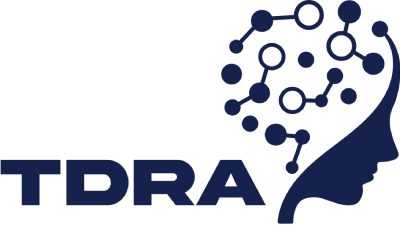Transcranial Direct Current Stimulation (tDCS) as a Therapeutic Approach for Dementia
Interventional Study
Get in touch about this studyFull study title: Exploring Transcranial Direct Current Stimulation (tDCS) as a Therapeutic Approach for Dementia: Multiple Studies Available Based on Diagnosis and Symptoms
What is the study about?
Four studies are being conducted to explore the potential of transcranial direct current stimulation (tDCS) in reducing specific impairments commonly experienced by people living with dementia. These include improving (1) language abilities (naming), (2) cognitive function (executive function), (3) memory (episodic memory), and (4) walking abilities (gait). Each study involves structured rounds of stimulation, during which participants complete exercises designed to target a particular symptom (e.g., memory, language, or mobility) while receiving stimulation. Some rounds will involve active (real) stimulation, while others will use placebo (sham) stimulation. Participants will not be informed which rounds contain real or sham stimulation, but they will experience both if they complete all study rounds.
Eligibility – Who can participate?
● 50 – 90 years of age
● You can only participate in one study at a time, but can complete multiple studies
Eligibility is based on diagnosis and primary area of impairment:
1. tDCS for Memory Impairment – People diagnosed with Mild Cognitive Impairment
2. tDCS for Language/Naming Improvement – People diagnosed with either Primary Progressive Aphasia (PPA) or Alzheimer’s Disease, whose primary difficulty is naming ability.
3. tDCS for Cognitive Impairment – People diagnosed with Alzheimer’s Disease whose primary symptom is cognitive impairment without language difficulty
4. tDCS for walking impairment – People diagnosed with Progressive Supranuclear Palsy (PSP)
Time requirement
Total duration of the study lasts 6-9 months. Each stimulation round will include assessments before and after stimulation in order to measure changes in impairment.
- tDCS for Memory Impairment – 3 rounds of stimulation (11-15 stimulations per round), spaced 3 months apart
- tDCS for Language/Naming Improvement – 2 rounds of stimulation (11-15 stimulations per round), spaced 3 months apart
- tDCS for Cognitive Impairment – 3 rounds of stimulation (11-15 stimulations per round), spaced 3 months apart
- tDCS for walking impairment – 3 rounds of stimulation (11-15 stimulations per round), spaced 3 months apart
Compensation/reimbursement: In all studies, parking is free and travel expenses are reimbursed.
TDRA study investigator
Carlos Roncero
Howard Chertkow
TDRA Site:
Baycrest,
Address: 3560 Bathurst St, North York, ON M6A 2E1
Age Group:
Target Population:
Alzheimer’s disease, Mild cognitive impairment, Primary Progressive Aphasia (PPA), Progressive Supranuclear Palsy (PSP)
